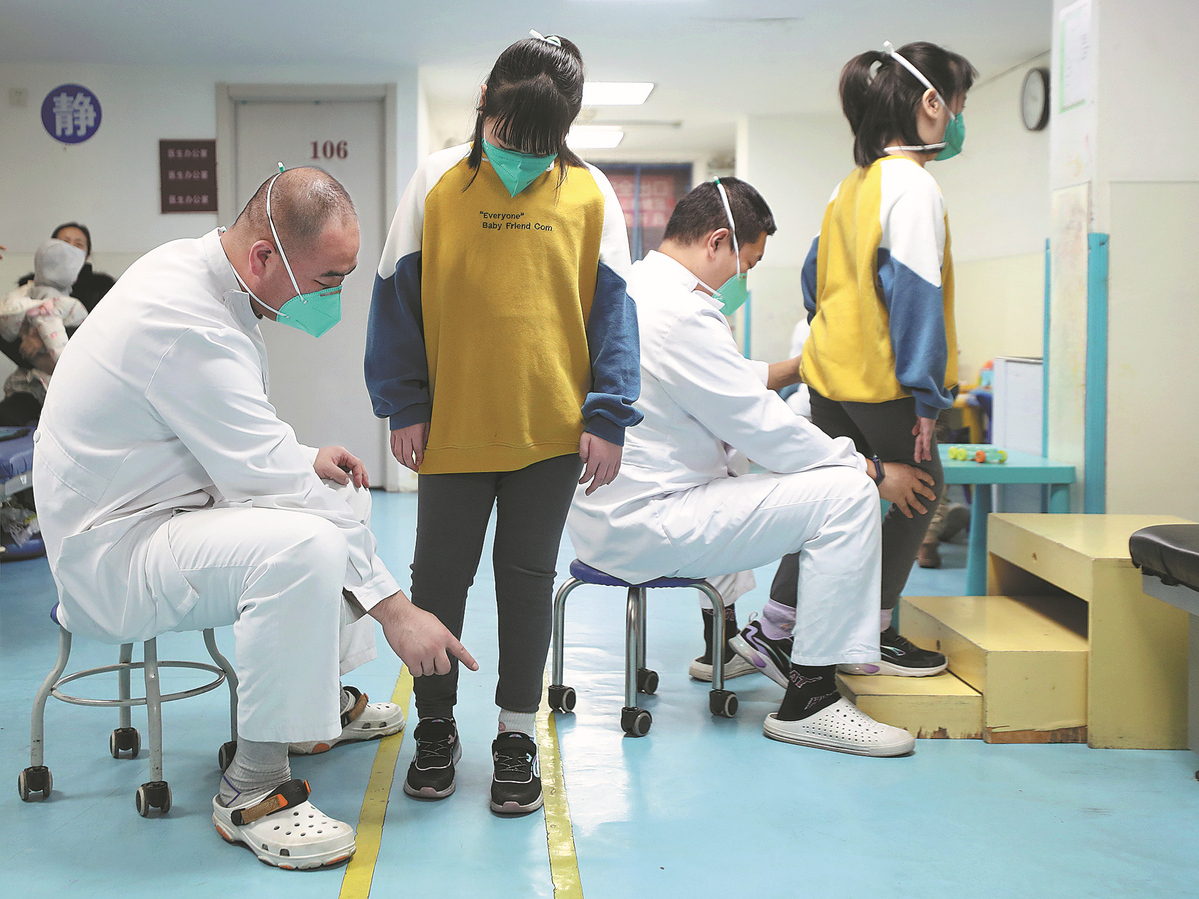Changes in working practices adversely affecting people's health


As working practices and lifestyles change, younger people are beginning to develop problems that were once only common among older people, such as pains in the neck, shoulders and lower back, according to doctors.
Young people's lives have changed a lot recently, especially for those who live and work in large cities.
They often bow their heads and hunch their shoulders to stare at mobile phones or sit in front of computer screens for long periods, so their shoulders, neck and lower back endure differing degrees of strain, which produces pain over the long term, said Sun Huimin, a doctor who has provided clinical massage therapy at the Beijing Massage Hospital for 20 years.
In recent years, the number of young people seeking treatment has risen rapidly, leading them to seek relief through massage, often through traditional Chinese therapies, the 46-year-old said.
Every day, young people account for about 60 percent of visitors to the hospital's outpatient department. That's about twice the number recorded just a few years ago.
They mostly visit from 3 pm to 9 pm because they need to work during the day, so they only have time in the late afternoon, evening or at weekends, he said.
Before opting for treatment at the hospital, many patients have visited various massage parlors but results are not guaranteed: any relief gained is usually temporary and the cost is often high, he noted.
"I think there are different reasons that young people choose our hospital — the service, the guaranteed treatment results and the fact that most of the cost is covered by public healthcare insurance, so there is not a lot of financial pressure on patients who need long-term treatment," he said.
Patient numbers at the hospital have risen gradually in the past decade. The rise is related to the improvement in medical insurance and growing awareness of health protection, he added.
"Fifteen years ago, the number of outpatient visits was not large, and we only had about 12 patients a day at weekends. Now, if you look at the weekend workload, we usually treat 30 patients every day," he said.
Zou Haipeng, another doctor at the hospital, said that in the past decade or so, it has become obvious that the average age of the patients is gradually falling. With the increase in overall demand, the number of practitioners has risen and a new hospital will soon be opened in Chaoyang district.
"Young people have a certain understanding of health and medicine, and they will search and consult via the internet. Therefore, during the treatment process, we will actively respond to patients' questions and give them appropriate, useful suggestions to relieve the psychological burden," the 39-year-old said.
"Patients come to us to solve their health problems. Many arrive looking worried and feeling miserable. After working for a period of time, we can sense their obvious mental and physical changes. Those with mild and severe problems show quite different symptoms. Patients with severe problems are more anxious to recover, so they may have tried different hospitals and treatment methods but with limited success, so we are a lifeline," he said.
Zou said that during treatment, the practitioner will inform the patient of any newly discovered problems and try to help him or her to recover as quickly as possible at minimum cost.
He recalled a case he handled in 2019, in which a 40-year-old patient came to the hospital for treatment after experiencing sudden pain in his cervical vertebrae.
During the treatment, Zou and his colleagues discovered a number of additional issues with the patient's sternum, so they told him and resolved the problem. This effectively helped relieve the patient's chest pain.
"In practice, we not only learn to master traditional techniques, but also actively learn to absorb the advanced technology of modern medicine, so the effect of the treatment is enhanced," he said.
- Yunnan celebrates its first nature reserve on the IUCN Green List
- Breakthrough in brain-machine interface technology empowers paralyzed patients
- UNIDROIT to establish Asia-Pacific office in Hong Kong
- Chinese scientists discover new fossil lungfish species
- 64 sculptors build 19-meter-tall snowman in Harbin
- Study reveals thirdhand smoke as hidden indoor air pollutants





































